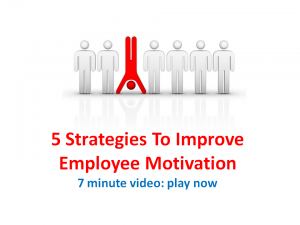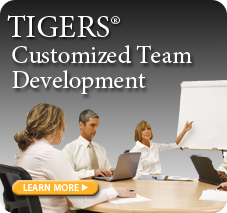 Perhaps you are worried about what is going to happen tomorrow. Or, perhaps you are rehashing something that disagreed with you three years ago. Perhaps you made a decision that turned out to be a bad one and you keep berating yourself about it. Projecting yourself into the future or musing over the past is not being in the now – right now. Why does it matter? There is power in staying present. Some call it the power of staying present and others call it being mindful. So what is this power and how do you access it?
Perhaps you are worried about what is going to happen tomorrow. Or, perhaps you are rehashing something that disagreed with you three years ago. Perhaps you made a decision that turned out to be a bad one and you keep berating yourself about it. Projecting yourself into the future or musing over the past is not being in the now – right now. Why does it matter? There is power in staying present. Some call it the power of staying present and others call it being mindful. So what is this power and how do you access it?
The term “mindfulness” is often thrown around the workplace, but do most people really know all that it entails? Mindfulness is often used as a therapeutic technique and involves removing distractions and focusing solely on the present moment, as well as your feelings and thoughts during that time. Our current culture regularly multitasks, which can have its place, but multitasking can also lead to missed details and poorer performances on all counts. In the workplace, the act of mindfulness can force leaders and employees to focus on the current task at hand. Not only will this improve team member performances, but it is also an important practice that promotes respect among team members. A respectful culture is a winning culture – a point of power to take away from this conversation.
Team building strategies to improve mindfulness in the workplace
It is often difficult to stay present when your work world and family life are whirling around you like a hurricane. However, with proven team building strategies, you, and your team, can improve mindfulness and spend more time in the moment – which is often happier and less stressful.
Change the inside first.
You likely won’t be able to focus on the moment if you feel overwhelmed by everything you have going on. If you feel stressed or overburdened, you will likely feel the draw to multitask, thinking you will get more done. But in fact, the opposite is typically true. To truly get more done, focus on one task to completion and then move on. To accomplish this, you’ll need to change your inner attitude first and assess how stress is impacting you, notes Dianne Crampton author of Melting Your Stress Within 30 Days. Your outward experiences are greatly influenced by your inner thoughts, so point your thoughts toward making plans and completing tasks and goals before moving on, and your experience will follow.
Listen to understand.
Listening to understand, truly listening, cannot happen without mindfulness. If you’re thinking about your to-do list (projecting your mind into the future) while someone is sharing information with you, you are going to miss details and understanding. Maybe you don’t think about what you have going on next, but you believe that you are fully engaged in the conversation at hand. But if you’ve thought of a response before the other person is finished talking, you weren’t truly listening. You were listening to respond, not to understand. To determine if you were actually engaged in the conversation, try to paraphrase what the other person just said. If you can’t, you need to refocus and actually pay attention to the other person when they are speaking. Practice this by paraphrasing back to the person what you just heard or by asking a question that will clarify what you just head. This keeps both parties aligned and on the same page while also promoting respect among team members. Your employees will feel respected when they feel heard and your understanding will increase substantially.
Shift your perspective.
Your perspective on life plays a major role in how you act and respond to situations. Your past experiences contribute to your perspective, and they can sometimes hold you back. When the past is unresolved, when forgiveness has not happened and when you have not let go of unfulfilling experiences they contaminate the present. To truly be mindful in all situations, you need to break free from your past and focus on the present. The way to do this is by shifting your perspective, which is accomplished by viewing problems as opportunities. When something is labeled a problem, you react to the situation. When something is labeled as an opportunity, you are proactive and find new angles and opportunities to change the status quo. Focus on the present, rather than the past, to improve your circumstances. And by all means learn from mistakes, forgive and move forward.
Celebrate successes.
Don’t forget to celebrate! Part of becoming mindful is recognizing the wins as they come along.Team members and fellow employees are more likely to reach their goals when leaders celebrate their successes along the way and as they occur. They will stay on track better when they receive deserved praise. They understand how what they accomplished will help them achieve future wins. This is engaging and the company as a whole will be more successful. So rather than only focusing on the needs of the future or the mistakes of the past, leaders who focus on the wins of today keep their team members motivated, on track and motivated to reach their goals.
Mindfulness is the act of being present in the moment while paying attention to current details, feelings and thoughts. It benefits the workplace because when leaders and team members focus on the present, they perform their tasks better and are equipped to handle situations as they arise. To start being more mindful, put away distractions like phones or extra browser windows and focus on one task at a time, rather than multitasking. Other team building strategies include changing your mindset and inner thoughts toward mindfulness; truly listening to others; shifting your perspective to focus on the present, rather than the past; and celebrate successes as they arise. With these strategies, leaders and team members can become more mindful in the workplace and experience greater success, performance and workplace happiness.
Other resources
Like this conversation? Here are some additional resources to expand your knowledge.
- Change Your Mindset for Greater Opportunities
- Melting Your Stress within 30 Days
- White paper: Why Happiness Matters in the Workplace and Beyond
- 6 Mindful Techniques to Become a More Conscientious Listener
- This One Simple Shift In Perspective Will Free You From The Past
- Team Building Tips To Show Employee Appreciation
Copyright TIGERS Success Series, Inc. by Jennifer Zimmerman
 About TIGERS Success Series, Inc.
About TIGERS Success Series, Inc.
TIGERS® Success Series provides a comprehensive and robust system for improving both your work environment and profitability. We specialize in workplace enrichment and employee re-invigoration management facilitation methods that builds workforce cooperation and high performance team dynamics. Scaled to grow as your organization and leadership performance grows, our proprietary Team Behavior Profile and leadership training workshops are based on the six principles we have found to be the right mix to make this happen. The six principles are Trust, Interdependence, Genuineness, Empathy, Risk and Success. Born from our many years of business, psychology, and educational group dynamic research, and subsequent four years of independent evaluation, we instill and sustain behaviors that improve work group performance and talent retention for measurable ROI.
Since 1987, TIGERS has served committed leaders who desire enhanced cooperation among departments, teams, managers and individual employees. This heightened level of cooperation leads to improved revenue, purpose, commitment and impact. Employees quit companies because they don’t get along with leaders and co-workers. Work culture refinement and behaviors that build strong relationships erase this trend remarkably fast. For more information call 1+541-385-7465 or visit https://corevalues.com .